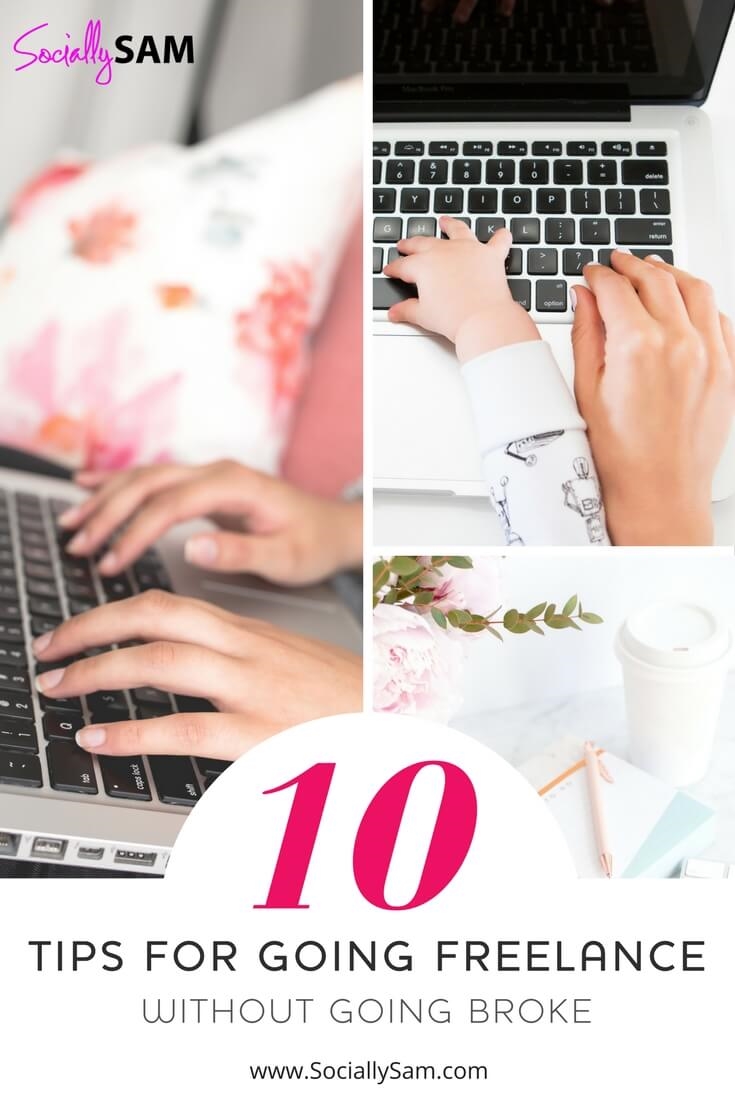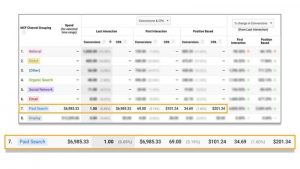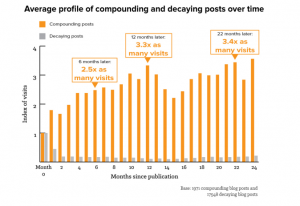— July 5, 2017

By 2020 it is predicted that in the US 40% of the workforce will be self-employed or freelance. More and more people are finding ways to earn a living without leaving their homes and without the constraints and normality of being employed by someone else. The freelancer and gig economy is booming right now.
Through the gig economy, freelancing, side hustles, passive income and multiple income streams the route to independence and freedom of choice in our lives is becoming easier. We no longer have to be tied to a desk for 8 hours a day, 5 days a week. Longing for 5pm on a Friday and dreading 9am on a Monday. With the standard 4 or 5 weeks holiday per year and the occasional paid sick day thrown in as a perk whilst not forgetting to be eternally grateful for the free tea and coffee and once a month early finish on a Friday. Whilst the security of a guaranteed payday every month is too much of a lure still for many, there is an ever increasing trend in moving away from this work slave model to a more flexible, work life balance, family friendly way of working.
You no longer have to formerly start a business. Make the big Facebook announcement that you are officially in business with yourself. You can just start to earn.
Freelance to Freedom
About 5 minutes ago I was quite shocked to realise my freelance journey started 6 years ago this summer. Shocked because I had to check my LinkedIn to find out how long it had been as I genuinely couldn’t remember. And shocked because I can’t believe it’s been that long!
Let’s take a trip down memory lane. 6 years ago, I was in a very good job, on paper, that I hated. Hated. It was corporate hell gone mad. Everyone around me hated working there. Nobody came to work happy. Everyone wanted out. Well apart from those right at the top who were just a shower of corporate bullies who were covering up for being useless at their jobs. The staff turnover was ridiculous. Good people left. There were some that had been there ages. They tended to be the absolute arse kissers, bullies or that rubbish at their jobs they couldn’t get a job anywhere else. I’m sure you’re getting the picture here. But I had a fancy title and a liveable pay packet so my mother was proud of me.
But I hated it. Like truly hated it. I woke up every morning almost praying for a severe illness that would prevent me from leaving the house. It would have to be severe though. This was the company that gave out disciplinary action to some that had been struck down with swine flu. I was working ridiculous hours and expected to be on the end of the phone even on my days holiday.
And then I snapped.

Escape From Corporate Hell
I compare escaping corporate hell to escaping somewhere like Alcatraz, Colditz, perilously dangerous all Steve McQueen style. It stems from the conditioning most of us are brought up with.
You have to earn enough money to pay the bills, on the house you hardly spend any time in, to raise the kids you hardly spend any time with. To pay for the car you need to drive to work, the work you hate, to sit in traffic for 3 hours a day. Ensuring you have a better car than the bloke next door. Getting a better conservatory than the family across the road. Having a 2 week holiday once a year to some bland concrete place that could be anywhere but we are told it’s this year’s place to be. Relax time. Only you can’t relax because you have a company phone and it never shuts up.
But if you can earn enough to pay for all of that whilst amassing a load of credit card debt and get the coveted manager title, then society will tell you that you have achieved something in life. And your mother will be proud.
I woke up one day and decided that enough was enough. Eventually, I went to work (late) and handed in my notice and then spent the next 3 months holding my nerve. I didn’t have another job to go to and I was determined I wasn’t going to get one either. Well, not a permanent one.
The Mistakes You Make
In hindsight, because that’s such a wonderful thing, I got it all wrong and spent the next couple of years making every mistake going and rehashing the plan to get back on track. After a series of small, not very well thought through ventures, a couple of temp jobs and part time jobs to keep things ticking over I eventually got on the right path. For the past 3 and a half years, I’ve been making a full-time income as Socially Sam, talking and doing social media marketing and blogging business, marketing, PR and anything else that pops into my mind.
I’ve created multiple income streams so if one thing starts going slow I know that not all my income is tied up in that one thing. And I’m always on the lookout to add to those streams. I’ve also become far more strategic in what I do so that I don’t waste too much time on the things that won’t generate income. Meaning I can spend more time doing what I enjoy doing. Be that relaunching my personal blog about 27 million times because I can never be totally happy with the branding or doing things with my daughter. Having a proper family life that I plan work around, not the other way around.
Don’t get me wrong, it’s been very hard at times. Remember when I wrote about the Emotional Rollercoaster of Starting Your Own Business? I didn’t make that one up. It was all from experience. But with hindsight, experience and the help of a time machine (one of those 3 was totally made up), here are some tips to help you go freelance without going broke. Oh and just for the record – I did all of this on my own as a single parent, hence why there’s no mention in any of these tips of relying on your partners’ income. This is all down to you now.
10 Tips For Going Freelance Without Going Broke

Do you love these tips and want to share them with others? Give this image a pin!
1. Save Up
I know how ridiculous that sounds. Saving up when you’re living payday to payday and probably just above broke. But that’s part of societies conditioning and why employers will pay you just enough to live just about within your means so you are just about above broke. It keeps you in their employment.
If you break down the absolute bare minimum you need to live on each month, have a personal survival budget that covers the essentials. Take out the money you spend each day just by going to work, so fuel, Boots lunchtime meal deal, Friday pub lunch, occasional after work beers. Suits, dry cleaning, collections for the latest escapee. It all mounts up. But once you have that figure down on paper you’ve got a figure to work towards to have in the bank for when you take the leap of faith into freelancing.
Ideally, in the mythological ideal world that none of us lives in, it’s best to have about 6 months worth of survival money in the bank. If you follow some of my other tips then you might just squeeze by on 3 months worth.
I had about 6 hours worth of funds. I guess that was mistake number one I made. To add to the 6 million I went on to make.
2. Stop Spending
Ok, so this goes hand in hand with the saving up. But being freelance will mean there are going to be times when it’s feast or famine. You are going to have times when you literally cannot afford that grande latte. So, now’s the time to stop buying one every day on your way to work. Magazines. Just read them online. Do you really need yet another pair of shoes? I bet you don’t. Premium brand or Tesco own brand? A night out at the cinema? Just wait for it on Netflix.
Most of us are very wasteful. Be it with our time (that’s another topic for another day but boy do we waste a lot of our time each day). Food. Learn to cook stuff with leftovers. Money.
Cut out the luxuries now so you’ll appreciate them all the more when you have earned every last penny you can pay for them with at a later date.
3. Bulk Buy Essentials
As well as learning to be more frugal it’s also good to start stockpiling whilst you’ve still got a guaranteed income each month. Things like toilet rolls, washing powder, cleaning products, tins of beans. When you start to notice the cost of things more and some weeks you need to make serious choices about your food budgets, you’ll be glad of the 200 toilet rolls you bulk bought and stashed in the loft.
4. Start To Side Hustle
I’ve written before about the importance of side hustles but it’s also a great way of starting to create and build an income stream before you quit your job. Creating a side hustle will get you into that business mindset of producing an income and you can always use the extra money you make towards your escape fund savings. You’ll also be able to figure out how scalable your side hustle is to then work towards it replacing your main income.

5. Keep Records
Remember, now that you’re side hustling it’s income so it has to be declared as that to HMRC. You can register for self-employed status whilst you are still employed and declare both incomes on your annual self-assessment. You will need to keep records of all your income and expenditure. It’s good to get into this habit early for numerous reasons. Yes, obviously because you have to tell the tax man what you earn, but also you need to keep a very close eye on your numbers. When you do go full-time freelance you’ll want to make sure that you are always on track to meet your personal survival budget.
It’s also important to track other numbers in your business. Website stats are vital as well as reach and engagement on social media. Granted likes and shares don’t pay the bills but they do tell you how many people are paying attention to you. Know exactly how many leads you need to convert to get a sale.
6. Get Insurance
It’s easy to remember to insure stuff like your laptop and phones but what about yourself? If you are your business, what happens if you’re suddenly seriously ill? What happens if you can’t work? Make sure you’re covered for all eventualities as now you work for yourself, there’s no sick pay.
7. Get Organized
We’ve already talked about keeping track of the numbers but what about everything else? Have you got a clear plan as to how you are going to get to the point of quitting your job? Have you set a time frame for it? Do you know how many clients you will need to get to that point?
Set yourself a very clear plan. Write out the plan in detail, down to what you will need to do each day/week/month to get you to your targets. Then get organized and stick to the plan. Set yourself specific times to work on your escape. Create a defined work space in your home. Get to work on your business and mean business!

8. Plan Your Payrise
Don’t just plan to get to the point where you will be financially ok to leave your job. Keep on planning. Do you want a 10% pay rise in 6 months? Well, plan how you will get it and stick to the plan. Don’t just get to the point of being ok with £2k coming in each month. Start aiming for £3k, then 4, then 5. As soon as you start to get complacent then the cracks will appear and you run the risk of doing a detour off your path. Stay on track!
9. Resign!
In all the excitement of planning to triple your income, we almost forgot the most important bit. Resigning. Now, you can do this the grown-up way or the bad ass bitch way. I’m not going to tell you to not burn your bridges and remember that you may need a reference someday. It’s entirely up to you how you resign. If you want to go all Bridget Jones telling Daniel Cleaver to stick his job then that’s your choice. You will feel a huge amount of satisfaction by doing that. Just make sure there isn’t a great big hole in your safety net and you know full well there is no going back once you’ve said it. You can’t put the toothpaste back in the tube.
Just remember that whatever you say or do it’s not going to make a blind bit of difference and the company culture will remain the same. The dinosaur of a boss will still be a raging misogynist and the bullying bitch will just move on to her next victim. I know it’s not right and I know you want to change the world, but that’s exactly what you are going to do. Your world. Leave them to fester in their own sad lives. You’ve got better things to do.
10. Tell Everyone

This is probably the hardest part. You are going to have to get comfortable with self-promotion. I know it feels nasty and we are all our own worst inner critic, but you have to get the word out there. You’ve got mouths to feed and shoes to buy. Let alone the mortgage and the gas! Let the word know you are open and ready for business.
And one last thing to remember – Good Luck!
Business & Finance Articles on Business 2 Community
(82)
Report Post








